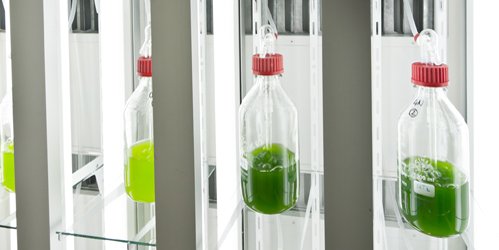Algae Biotech is a company founded in 2008 with the head office in Spain and a branch office in the Netherlands. Algae Biotech’s core business started with the idea of replacing the highly unsustainable food grade fish oil with sustainably grown and processed food grade algae oil. This way, we would offer consumers of fish oil healthier and more sustainably produced omega-3 food products and supplements containing EPA fatty acid obtained from microalgae.
The growing of the algae, as well as the process technologies involved have been developed by sister company CleanAlgae and parent company FeyeCon B.V. respectively
Algae Biotech SL’s major shareholder is a Dutch company called FeyeCon B.V., which specializes in the application of scientific and carbon dioxide technology. FeyeCon employees over 40 people from a mainly scientific background, many of which supply knowledge and expertise to Algae Biotech SL and its associated companies.

Algae Biotech SL has a sister company, CleanAlgae SL, which focuses on the growing of algae. At this moment, CleanAlgae SL is developing its main growing operations in Gran Canaria, with its initial pilot algae growing facility on an area of 2500 square meters being located in Den Bosch, The Netherlands. CleanAlgae plans to be a substantial grower of micro-algae in the near future.

Source: http://www.algaebiotech.es

